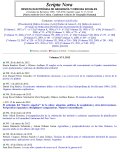Reason, state, city and territory: from Sinapia to Valentín de Foronda
Keywords:
Modern state, regional planning, provincial division, seventeenth-twentieth centuries, Sinapia, Policy Science, Foronda, urban managementAbstract
From the second half of the sixteenth century onwards, Europe witnessed a complex process of planning (both territorial and of major cities) alongside the development of the urban network which, with certain modifications, has lasted until the present day. Such a dynamic ran parallel with the formation of modern states, which gave rise to serious thinking about these questions and about the relationships between sovereignty, territory, city and government. In the nineteenth century new elements linked to the construction of liberal states entered the equation.This article comprises three investigations into the rationalist thinking that treated these themes. We will encounter first the proposals of the late baroque utopia Sinapia, from the end of the seventeenth century. Policy Science will next provide an example of administrators’ rationality and pragmatism. Finally, the discourse of Foronda will act as a test case for the Cartesian stance which, at the dawn of Liberal States, resorted to the ruler and set-square for regional and urban planning.
Downloads
Issue
Section
Articles
License
Los autores que publican en esta revista están de acuerdo con los siguientes términos:
- Los autores conservan los derechos de autoría y otorgan a la revista el derecho de primera publicación, cin la obra disponible simultáneamente bajo una Licéncia de Atribución Compartir igual de Creative Commons que permite compartir la obra con terceros, siempre que estos reconozcan la autoría y la publicación inicial en esta revista.
- Los autores son libres de realizar acuerdos contractuales adicionales independientes para la distribución no exclusiva de la versió de la obra publicada en la revista (com por ejemplo la publicación en un repositorio institucional o en un libro), siempre que se reconozca la publicación inicial en esta revista.





